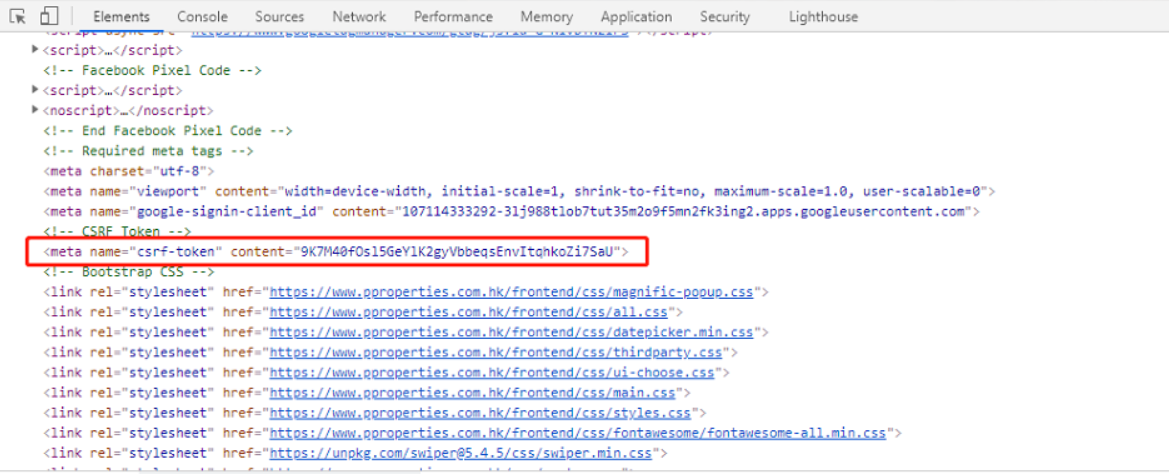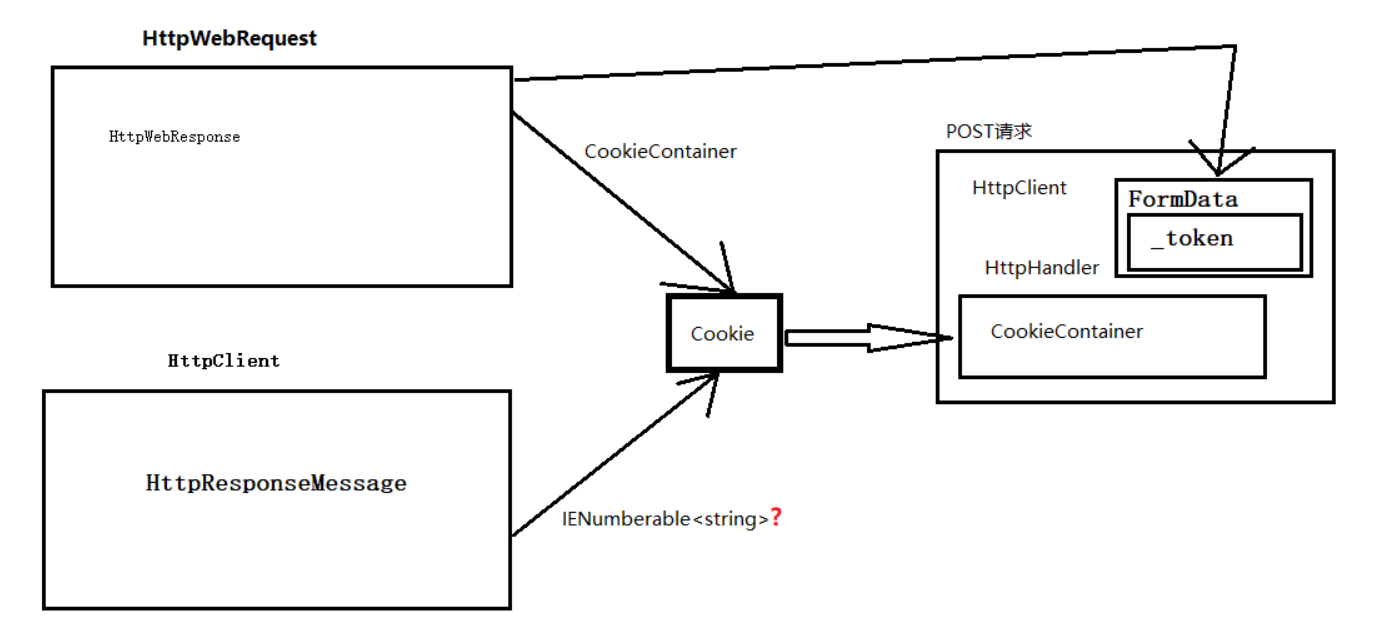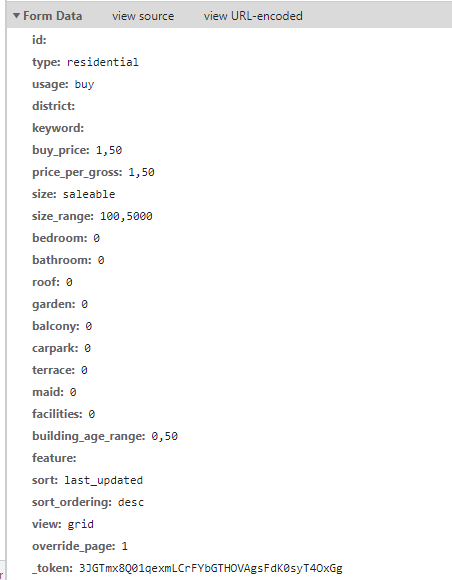最近写爬虫遇到一个网站带有防止CSRF攻击机制,该接口为POST请求,用PostMan测试后发现需要请求头的Cookie和FormData里面的一个_token参数才能发起正确的请求,这两个参数缺一不可而且有效时间只有一天,因为爬虫是做成定时任务的,每天在一个时间点都会自己运行,这样的话每天都要更换Cookie和Token太麻烦,摸索了一段时间后发现可以破解此网页的CSRF:
第一步是Cookie会过期,所以先获取Cookie:
首先请求该网页的任意一个Get请求要能成功的,然后然后获取响应内容的SetCookie,再将SetCookie放到POST请求中的CookieContainer中即可;

public static CookieContainer CookieContainer = new CookieContainer(); public static void GetCookieAndToken() { Encoding encoding = Encoding.UTF8; string requestUrlString = @"https://www.pproperties.com.hk/tc"; //向服务端请求 HttpWebRequest myRequest = (HttpWebRequest)WebRequest.Create(requestUrlString); myRequest.ContentType = "application/x-www-form-urlencoded"; myRequest.CookieContainer = new CookieContainer(); //将请求的结果发送给客户端(界面、应用) HttpWebResponse myResponse = (HttpWebResponse)myRequest.GetResponse(); CookieContainer.Add(myResponse.Cookies); StreamReader reader = new StreamReader(myResponse.GetResponseStream(), encoding); var htmlStr = reader.ReadToEnd(); HtmlDocument html = new HtmlDocument(); html.LoadHtml(htmlStr); HtmlNodeCollection node = html.DocumentNode.SelectNodes(@"//meta[@name='csrf-token']"); if (node != null) { Token = node.First().Attributes["content"].Value; } else { GetCookieAndToken(); } }
这里请求用的是HttpWebRequest因为HttpWebResponse拿到的Cookie能直接添加到CookieContainer,如果用HttpClient请求的话拿到的Cookie是IENumberable<string>类型的,(最终的POST请求)这里因为数据过多需要用到异步所以考虑HttpClient,而HttpClient中设置Cookie的方式为CookieContainer。
所以这里是先用HttpWebRequest获取CookieContainer然后再用得到CookieContainer添加到HttpHandler中用HttpClient发起Post请求,这么复杂是因为我还没找到将IENumberable<string>转为CookieContainer。
第二步是获取Token(代码在上面获取Cookie里面)
能破解CSRF是因为在网页找到隐藏的Token:

获取Token:

这里解析Html用的是HtmlAgilityPack
上面文字很绕口所以下面有图文解析:

最后用Post请求数据:

HttpClientHandler handler = new HttpClientHandler() { CookieContainer = CookieContainer}; using (HttpClient client = new HttpClient(handler)) { HttpRequestMessage message = new HttpRequestMessage(HttpMethod.Post, postUrl); message.Headers.Add("accept-language", "zh-CN,zh;q=0.9,en;q=0.8"); viewdata += Token; var dic = FormDataToDictionary(viewdata); message.Content = new FormUrlEncodedContent(dic); HttpResponseMessage response = client.SendAsync(message).Result; return response.Content.ReadAsStringAsync().Result; }
HttpContent格式:
MultipartFormDataContent => multipart/form-data
FormUrlEncodedContent => application/x-www-form-urlencoded
StringContent => application/json等
StreamContent => binary
FormUrlEncodedContent()方法里的键值对只能一个一个加上去,这里我封装了一个方法一次性加上去:
 VS
VS 

//viewparse转成Dictionary static Dictionary<string, string> FormDataToDictionary(string viewParse_Encode) { var viewParse = System.Web.HttpUtility.UrlDecode(viewParse_Encode, System.Text.Encoding.UTF8); Dictionary<string, string> dic = new Dictionary<string, string>(); var arr = viewParse.Split(new char[] { '&' }, StringSplitOptions.RemoveEmptyEntries); foreach (var a in arr) { var arr2 = a.Split(new char[] { '=' }, StringSplitOptions.RemoveEmptyEntries); if (arr2.Length == 1) { string s = string.Empty; dic.Add(arr2[0], s); } else dic.Add(arr2[0], arr2[1]); } return dic; }
参考:
C#如何HttpWebRequest模拟登陆,获取服务端返回Cookie以便登录请求后使用 - 黄聪 - 博客园 (cnblogs.com)
C#中使用HttpClient来Post数据的内容HttpContent的各种格式 - 齐建伟 - 博客园 (cnblogs.com)
本文摘自 :https://www.cnblogs.com/


